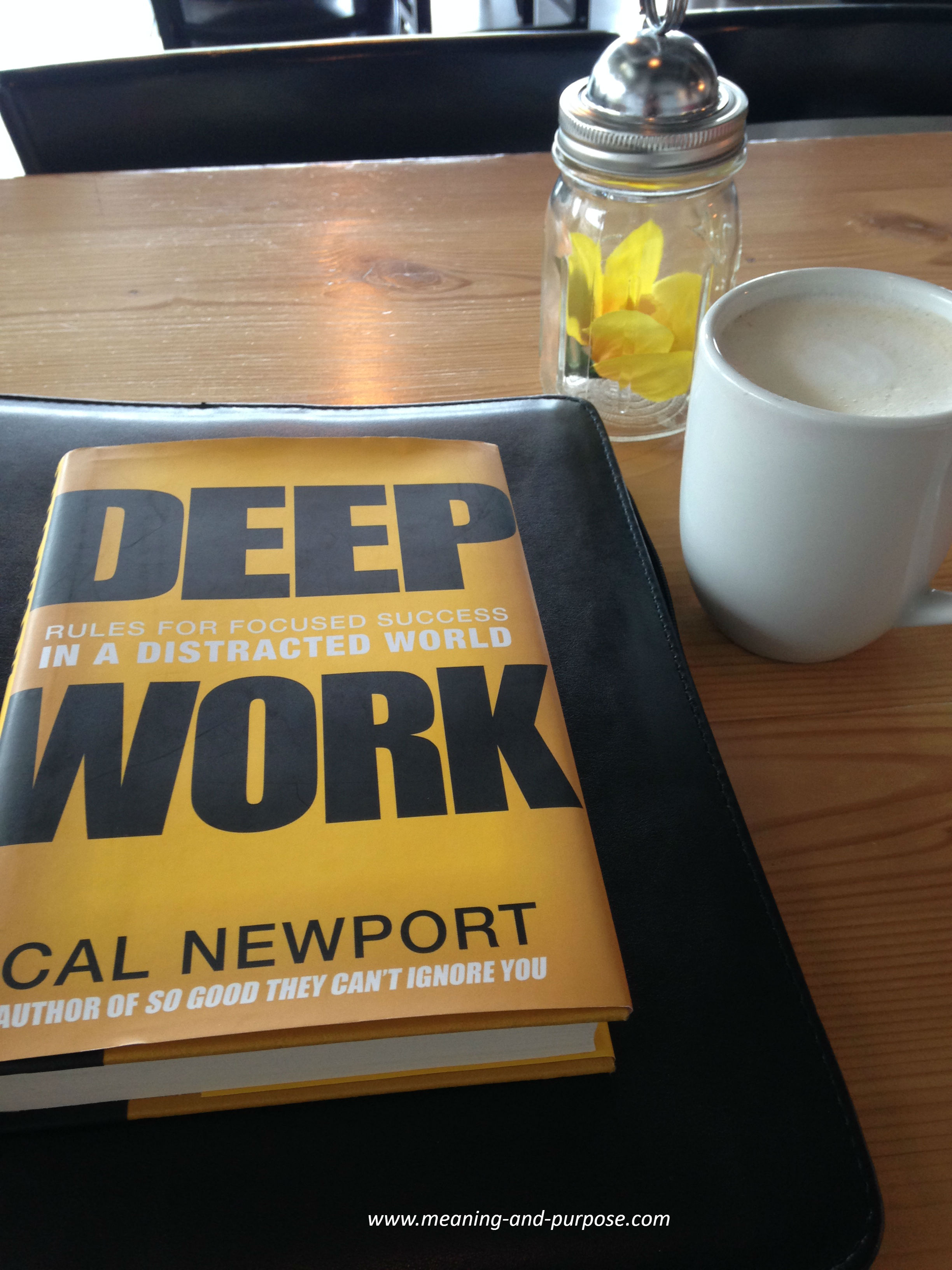
This article was originally published by Des Moines Business Record.
If I handed you a project file and a quiet space, how long would you focus on it before you checked your phone or your mind began to wander?
If you’re like the vast majority, probably not long. In his latest book,Deep Work, Cal Newport makes the case that our ability to focus on singular pursuits for any length is becoming more rare — and increasingly valuable. With technological advances, changing workplace structures, and a host of other factors, we must make a conscious effort to create periods of full-concentration, distraction-free focus if we are to perform at our peak and make the contribution we’re here to make.
So, who’s thinking, “I crave that — but can you show this research to my employer / co-workers / team, please?”
Among my executive and leadership coaching clients, this lack of focused time is one of their greatest frustrations. They long for quiet time to devote to strategizing, visioning and high-level work, but they often spend their days in meetings and “putting out fires.” What to do?
Some changes need to occur at the organizational level, but there is much you can do as an individual, too. I recently shared five tips on my blog (click here to read); in addition, you might:
Corral your email.
Consider an autoresponder that tells senders you’ll reply within 24 hours. Batch email checks to certain times each day. Remove email from your phone, checking it only when you’re at your computer instead.
Turn in your Busy-ness Badge.
If your response to “How are you?” is consistently, “Busy!”, let it go. Busy-ness is not a badge of honor nor an aspirational state. Choose to be intentional, purposeful and prioritized.
Schedule deep work.
In The One Thing, authors Keller and Papasan encourage spending four hours per day — ideally first thing in the morning — on your most important goal. Every day. My clients who embrace this practice see a marked difference in purposeful productivity for sure, but not everyone can structure their work accordingly. A few shorter pockets of time per week for this same purpose can be nearly as valuable, especially if you currently have about zero such time scheduled. Newport offers four different scheduling techniques to match your personality and workplace reality, too.
Make a major change.
“Sometimes to go deep, you must first go big.” Newport shares how J.K. Rowling, on deadline with her final book in the Harry Potter series, checked into the luxurious 5-star Balmoral Hotel in Edinburgh. Making a grand gesture — i.e., shelling out $1,000/day for the quiet space to write — can work wonders for your focus, motivation and productivity.
I had the pleasure of hearing Newport speak at a coaching leadership conference earlier this year. His line that sticks with me the most? “A deep life is a good life.” We all have the ability to bring more depth, meaning and purpose into our work and lives, regardless of the distractions surrounding us.
What’s your biggest distraction? Perhaps social media, poorly run meetings, staying up too late, TV, or any number of things that keep you from devoting focused time to your priorities and joys.
Pinpoint the greatest one, then take an action to minimize its effect on you. You might choose from those I’ve offered, or perhaps you know exactly what you need to do — you just need to do it. Commit to the action for a week and see what changes in your sense of purposeful focus in just a short time!
How do you maintain focus in this distracted world? Share your best practices below!
Deep Work by Cal Newport (Grand Central Publishing, 2016).
Dr. Christi Hegstad is a certified and award-winning executive and leadership coach who helps people work, live and lead with meaning and purpose. Learn more at www.meaning-and-purpose.com or on Facebook, Twitter and Instagram.





